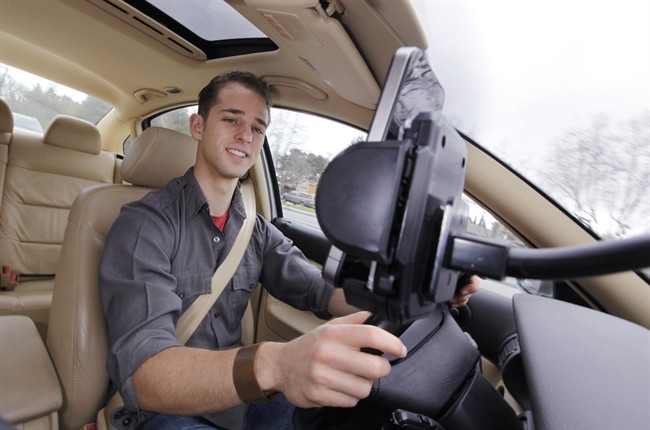WASHINGTON – Sheriffs are pressuring Google Inc. to turn off a feature on its Waze traffic software that warns drivers when police are nearby. They say one of the technology industry’s most popular mobile apps could put officers’ lives in danger.

Waze, which Google purchased for $966 million in 2013, is a combination of GPS navigation and social networking. Fifty million users in 200 countries turn to the free service for real-time traffic guidance and warnings about nearby congestion, car accidents, speed traps or traffic cameras, construction zones, stalled vehicles or unsafe weather conditions.
To Sergio Kopelev, a reserve deputy sheriff in California, Waze is also a stalking app for law enforcement.
READ MORE: Waze could lead way to Israeli Internet growth
There are no known connections between any attack on police and Waze, but Kopelev and others are concerned it’s only a matter of time. They are seeking support among law enforcement trade groups to pressure Google.
Brown and Kopelev raised concerns during the meeting of the National Sheriffs Association winter conference in Washington. They pointed to the Instagram account of the man accused of fatally shooting two New York Police Department officers last month. Ismaaiyl Brinsley posted a screenshot from Waze along with messages threatening police. Investigators do not believe he used Waze to ambush the officers, in part because police say Brinsley tossed his cellphone far from where he shot the officers.

Get breaking National news
The executive director of the Fraternal Order of Police, Jim Pasco, said his organization has concerns.
The emerging policy debate places Google again at the centre of a global debate about public safety, consumer rights and privacy.
Waze users mark police presence on maps without much distinction other than “visible” or “hidden.” Users see a police icon, but it’s not immediately clear whether police are there for a speed trap, a sobriety check or a lunch break.
A Waze spokeswoman, Julie Mossler, said the company works with the New York Police Department and others around the world.
“These relationships keep citizens safe, promote faster emergency response and help alleviate traffic congestion,” Mossler said.
Google declined to comment.
Google has a complicated relationship with government and law enforcement. The company is regularly compelled to turn over to police worldwide copies of emails or other information about its customers.
READ MORE: More cameras, better signal timing and traffic apps can help ease gridlock now
Last year, after disclosures that the National Security Agency had illicitly broken into Google’s overseas Internet communication lines, Google and other technology companies rolled out encryption for users, which the U.S. government said could hamper law enforcement investigations.
Nuala O’Connor, head of the Center for Democracy and Technology, a Washington civil liberties group, said it would not be appropriate for Google to disable the police-reporting feature.
“I do not think it is legitimate to ask a person-to-person communication to cease simply because it reports on publicly visible law enforcement,” she said. She said a bigger concern among privacy advocates is how much information about customers Waze shares with law enforcement, since the service monitors their location continually as long as it’s turned on.







Comments